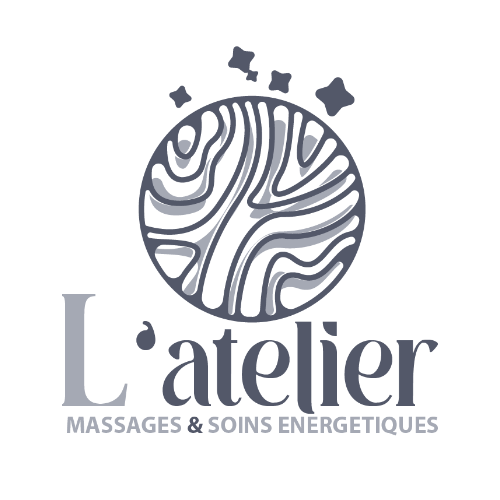What is Reiki?
- Franck de L'Atelier

- Mar 14, 2024
- 3 min read

Reiki is a Japanese healing method belonging to the energetic approach. In this article, you will discover what this therapy is, its principles, its history, its benefits, its practice as well as the contraindications.?
In Japanese, Rei means universal and includes matter, soul and spirit. Ki (or Qi) refers to the vital energy that circulates within us, as understood in oriental medicines such as Traditional Chinese Medicine and Ayurveda. Reiki is therefore the putting or reconnection of “universal energy” and our own “vital force” with the aim of awakening a dynamic healing process.
The main principles Reiki belongs to the so-called energetic approaches, in which the practitioner intervenes on the person's vibrational field. This skill is usually associated with meditation techniques or disciplines of spiritual practice as have existed, in one form or another, in the majority of cultures throughout history. But Reiki differs from these traditional practices since it is stripped of any religious attachment and does not require a particular spiritual path.
The concepts underlying energy therapies such as Reiki have theoretical commonalities with various models proposed in modern physics1. Of course, none of these models have been experimentally linked to medicine or clinical outcomes.
The models proposed in bioelectromagnetism, in quantum physics or according to superstring theory, for example, are consistent with Eastern writings. These suggest that an extremely subtle vibration could constitute the substrate of matter as we know it. It could therefore have a role to play in health and disease.
In a Reiki session, the practitioner channels universal energy and, using esoteric symbols and sacred sounds, transmits it by placing their hands on different parts of the patient's body. Hands do not have to come into direct contact with the patient's body. Energy transmission could even be done remotely. Universal energy would also have its own “intelligence”, which would allow it to go exactly where the patient needs it, and not to cause any undesirable side effects. The practitioner's personal energy is meant to never interfere in the process.
The benefits of Reiki In recent years, at least 4 systematic reviews have been published on the therapeutic effects of Reiki 2-5. However, the methodological quality of the research carried out to date is deficient. Scientific evidence is therefore currently insufficient to assert that Reiki is an effective therapeutic approach in clinical practice.
Reduce stress and depressive symptoms. Reiki is used by some practitioners to reduce anxiety during surgeries or in health or retirement homes, for example. It has also been reported to help reduce stress and periods of depression in older adults1.
Improving the quality of life of people with cancer. Several studies have shown the beneficial effect of Reiki on fatigue, pain, anxiety and quality of life in individuals suffering from cancer 12 13
Reduce memory and behavior problems. A study carried out on patients suffering from either Alzheimer's disease or mild cognitive impairment showed an improvement in mental function as well as a reduction in memory and behavioral problems among participants in the Reiki group. But these results must be considered preliminary due to the absence of a placebo group (reiki mimicked, for example) and the small number of participants.11.
Reduce pain: several studies have shown the beneficial effects of Reiki on pain. A randomized study of individuals undergoing wisdom teeth extraction showed that Reiki sessions after the procedures significantly reduced the pain felt7. In another study carried out on women presenting for a hysterectomy, Reiki was able to reduce the consumption of analgesics and improve the pain of the participants9.
Contribute to rehabilitation following a stroke. A clinical trial evaluated the effectiveness of Reiki as an addition to the rehabilitation protocol in hospitalized stroke patients6. The results indicated that Reiki would have a limited and selective effect on mood and energy levels. On the other hand, it would not have a significant effect on functional independence in daily activities such as eating, dressing, moving, etc., nor on depression.

.png)



Comments